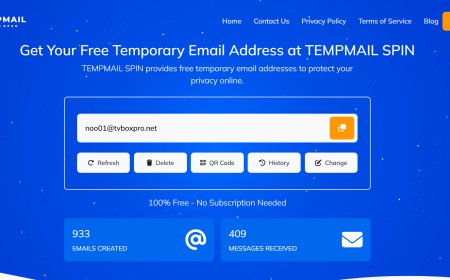Advantages of Developing a Mobile Application from Scratch in 2025
Developing a custom mobile app in 2025 allows businesses to create tailored solutions that address unique needs, streamline operations, and enhance user satisfaction, providing a competitive edge in a digital-first world.

Developing a mobile application from scratch in 2025 offers businesses unparalleled opportunities to create tailored solutions that align precisely with their objectives, user expectations, and technological advancements. As the digital landscape continues to evolve, the importance of custom app development becomes increasingly evident. Below, we delve into the comprehensive advantages of building an app from the ground up in 2025.
1. Tailored Customization for Unique Business Needs
Custom app development empowers businesses to design applications that cater specifically to their operational requirements and customer preferences. Unlike off-the-shelf solutions, which offer generic functionalities, custom apps allow for the integration of features that address unique challenges and workflows. This level of personalization ensures that the app aligns seamlessly with the company's brand identity, processes, and goals.
For instance, a logistics company can develop a custom app that integrates real-time tracking, inventory management, and delivery scheduling, providing a cohesive platform that enhances efficiency and customer satisfaction. Such bespoke solutions are instrumental in addressing specific pain points and streamlining operations.
2. Enhanced Scalability and Flexibility
As businesses grow, their technological needs evolve. Custom applications are inherently scalable, designed to accommodate increasing user bases, data volumes, and feature expansions. This adaptability ensures that the app remains relevant and functional as the business landscape changes.
Moreover, custom apps can be built with modular architectures, allowing for the addition or modification of components without disrupting the entire system. This flexibility is crucial for businesses aiming to stay agile and responsive to market demands.
3. Robust Security Measures
In an era where data breaches and cyber threats are prevalent, security is paramount. Custom mobile app development solution allows businesses to implement advanced security protocols tailored to their specific needs. This includes data encryption, secure authentication mechanisms, and compliance with industry-specific regulations such as GDPR or HIPAA.
By controlling the security architecture, businesses can proactively address vulnerabilities and ensure the protection of sensitive information. This proactive approach to security fosters trust among users and stakeholders.
4. Seamless Integration with Existing Systems
Custom applications can be designed to integrate seamlessly with a company's existing software ecosystem, including CRM, ERP, and other enterprise systems. This integration facilitates efficient data flow, reduces redundancy, and enhances overall operational efficiency.
For example, integrating a custom app with a CRM system can provide sales teams with real-time access to customer data, enabling personalized interactions and improved customer service. Such integrations are vital for creating a unified and efficient technological infrastructure.
5. Optimized Performance and User Experience
Custom apps are developed with a focus on performance optimization and user-centric design. By tailoring the app's functionalities to specific user needs, businesses can ensure intuitive navigation, faster load times, and a seamless user experience.
A well-designed user interface enhances user engagement and satisfaction, leading to increased retention rates and positive word-of-mouth referrals. Incorporating user feedback during the development process further refines the app's usability and effectiveness.
6. Cost-Effectiveness Over Time
While the initial investment in custom app development may be higher than purchasing off-the-shelf solutions, the long-term cost benefits are significant. Custom apps eliminate recurring licensing fees and reduce the need for multiple software subscriptions.
Additionally, custom apps are designed to improve operational efficiency, reducing manual processes and associated labor costs. Over time, these savings contribute to a higher return on investment and better resource allocation.
7. Competitive Advantage and Market Differentiation
In a competitive marketplace, differentiation is key. Custom apps provide businesses with unique functionalities and features that set them apart from competitors. By addressing specific customer needs and offering innovative solutions, businesses can position themselves as industry leaders.
For instance, a retail company can develop a custom app with personalized shopping experiences, exclusive deals, and loyalty programs, enhancing customer engagement and fostering brand loyalty.
8. Full Ownership and Control
Developing an app from scratch grants businesses complete ownership of the application's codebase and intellectual property. This ownership allows for greater control over the app's functionalities, updates, and future developments.
Businesses can implement changes and enhancements without relying on third-party vendors, ensuring that the app evolves in alignment with strategic objectives and market trends.
9. Improved Customer Engagement and Satisfaction
Custom apps enable businesses to create personalized experiences that resonate with their target audience. Features such as push notifications, in-app messaging, and tailored content foster direct communication and engagement with users.
By addressing user preferences and providing value-added services, businesses can enhance customer satisfaction and build lasting relationships. This customer-centric approach is instrumental in driving loyalty and repeat business.
10. Access to Actionable Analytics and Insights
Custom applications can be equipped with advanced analytics tools that provide insights into user behavior, app performance, and engagement metrics. These data-driven insights enable businesses to make informed decisions, optimize marketing strategies, and refine app functionalities.
By understanding user interactions and preferences, businesses can continuously improve the app's effectiveness and align it with evolving customer needs.
11. Adaptability to Emerging Technologies
The technological landscape is constantly evolving, with advancements in artificial intelligence, machine learning, and the Internet of Things (IoT). Custom apps can be designed to integrate these emerging technologies, enhancing functionalities and providing innovative solutions.
For example, incorporating AI-driven chatbots can improve customer service, while IoT integration can enable real-time monitoring and automation in various industries. This adaptability ensures that businesses remain at the forefront of technological innovation.
12. Regulatory Compliance and Industry Standards
Different industries are subject to specific regulations and compliance requirements. Custom app development allows businesses to incorporate necessary compliance measures from the outset, ensuring adherence to legal and industry standards.
For instance, healthcare applications can be developed to comply with HIPAA regulations, safeguarding patient data and maintaining confidentiality. Proactive compliance integration mitigates legal risks and fosters trust among users and stakeholders.
13. Enhanced Collaboration and Communication
Custom apps can be tailored to facilitate internal collaboration and communication within an organization. Features such as project management tools, real-time messaging, and document sharing streamline workflows and enhance team productivity.
By centralizing communication channels, businesses can reduce miscommunication, improve decision-making processes, and foster a collaborative work environment.
14. Long-Term Strategic Investment
Investing in custom app development is a strategic decision that yields long-term benefits. The app becomes a valuable asset that evolves with the business, supporting growth, innovation, and competitive positioning.
By aligning the app's development with the company's vision and objectives, businesses can ensure sustained relevance and impact in their respective markets.
15. Support and Maintenance Tailored to Business Needs
Custom app development includes ongoing support and maintenance services that are specifically tailored to the application's requirements. This ensures that the app remains functional, secure, and up-to-date with the latest technological advancements.
Dedicated support teams can promptly address issues, implement updates, and provide enhancements, ensuring optimal performance and user satisfaction.
Conclusion
In 2025, the advantages of developing a mobile application from scratch are more compelling than ever. Custom app development offers businesses the opportunity to create tailored solutions that align with their unique needs, foster innovation, and drive growth. By investing in custom applications, businesses can enhance operational efficiency, improve customer engagement, and maintain a competitive edge in an increasingly digital world.
Note: Dev Story specializes in creating custom mobile applications, offering expert iOS and Android development, intuitive UI/UX design, and scalable on-demand app development solutions. With a focus on user-centric design and seamless functionality, we bring your digital ideas to life.

















































































